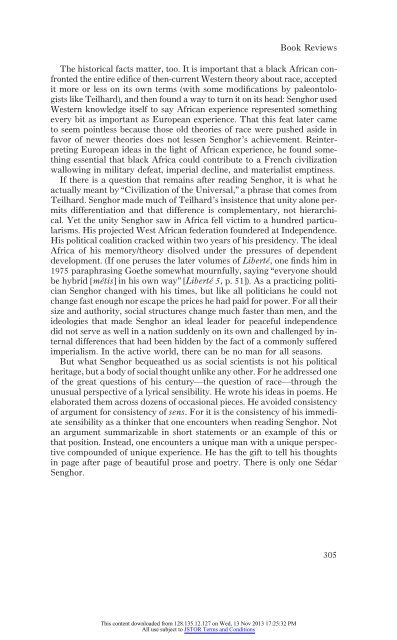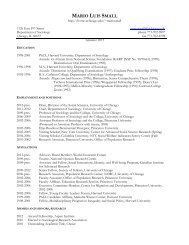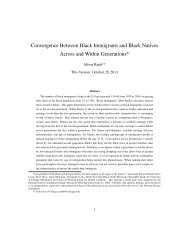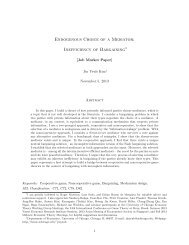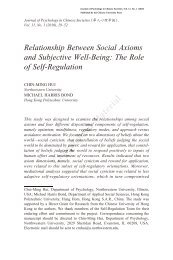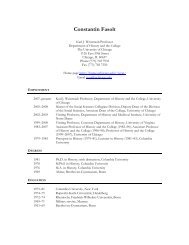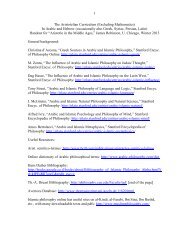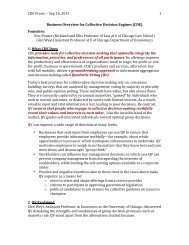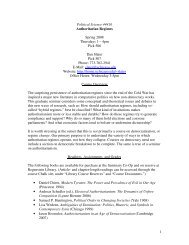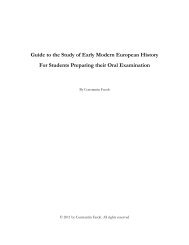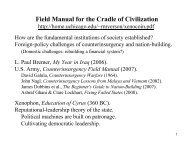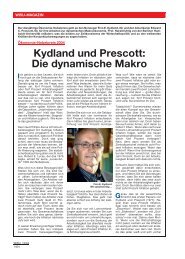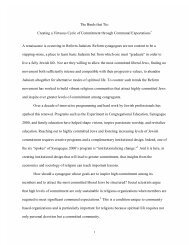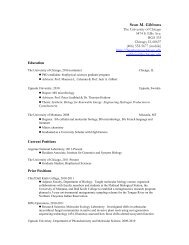Leopold Sedar Senghor Liberte 1:Negritude et Humanisme. On ...
Leopold Sedar Senghor Liberte 1:Negritude et Humanisme. On ...
Leopold Sedar Senghor Liberte 1:Negritude et Humanisme. On ...
Create successful ePaper yourself
Turn your PDF publications into a flip-book with our unique Google optimized e-Paper software.
Book Reviews<br />
The historical facts matter, too. It is important that a black African confronted<br />
the entire edifice of then-current Western theory about race, accepted<br />
it more or less on its own terms (with some modifications by paleontologists<br />
like Teilhard), and then found a way to turn it on its head: <strong>Senghor</strong> used<br />
Western knowledge itself to say African experience represented som<strong>et</strong>hing<br />
every bit as important as European experience. That this feat later came<br />
to seem pointless because those old theories of race were pushed aside in<br />
favor of newer theories does not lessen <strong>Senghor</strong>’s achievement. Reinterpr<strong>et</strong>ing<br />
European ideas in the light of African experience, he found som<strong>et</strong>hing<br />
essential that black Africa could contribute to a French civilization<br />
wallowing in military defeat, imperial decline, and materialist emptiness.<br />
If there is a question that remains after reading <strong>Senghor</strong>, it is what he<br />
actually meant by “Civilization of the Universal,” a phrase that comes from<br />
Teilhard. <strong>Senghor</strong> made much of Teilhard’s insistence that unity alone permits<br />
differentiation and that difference is complementary, not hierarchical.<br />
Y<strong>et</strong> the unity <strong>Senghor</strong> saw in Africa fell victim to a hundred particularisms.<br />
His projected West African federation foundered at Independence.<br />
His political coalition cracked within two years of his presidency. The ideal<br />
Africa of his memory/theory disolved under the pressures of dependent<br />
development. (If one peruses the later volumes of Liberté, one finds him in<br />
1975 paraphrasing Go<strong>et</strong>he somewhat mournfully, saying “everyone should<br />
be hybrid [métis] inhisownway” [Liberté 5, p. 51]). As a practicing politician<br />
<strong>Senghor</strong> changed with his times, but like all politicians he could not<br />
change fast enough nor escape the prices he had paid for power. For all their<br />
size and authority, social structures change much faster than men, and the<br />
ideologies that made <strong>Senghor</strong> an ideal leader for peaceful independence<br />
did not serve as well in a nation suddenly on its own and challenged by internal<br />
differences that had been hidden by the fact of a commonly suffered<br />
imperialism. In the active world, there can be no man for all seasons.<br />
But what <strong>Senghor</strong> bequeathed us as social scientists is not his political<br />
heritage, but a body of social thought unlike any other. For he addressed one<br />
of the great questions of his century—the question of race—through the<br />
unusual perspective of a lyrical sensibility. He wrote his ideas in poems. He<br />
elaborated them across dozens of occasional pieces. He avoided consistency<br />
of argument for consistency of sens. For it is the consistency of his immediate<br />
sensibility as a thinker that one encounters when reading <strong>Senghor</strong>. Not<br />
an argument summarizable in short statements or an example of this or<br />
that position. Instead, one encounters a unique man with a unique perspective<br />
compounded of unique experience. He has the gift to tell his thoughts<br />
in page after page of beautiful prose and po<strong>et</strong>ry. There is only one Sédar<br />
<strong>Senghor</strong>.<br />
305<br />
This content downloaded from 128.135.12.127 on Wed, 13 Nov 2013 17:25:32 PM<br />
All use subject to JSTOR Terms and Conditions


